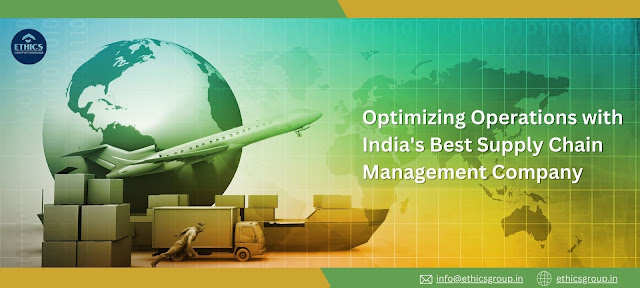In today's rapidly evolving business landscape, sustainability in supply chain management has emerged as a critical imperative. As companies worldwide recognize the urgent need to minimize their environmental footprint and embrace ethical practices, the concept of a sustainable supply chain management has gained prominence. From reducing carbon emissions to promoting ethical sourcing and embracing circular economy principles, businesses are increasingly seeking innovative strategies to build a greener and more resilient supply chain.
Embracing Sustainability in Supply Chain Management
Sustainability in supply chain management involves integrating environmental, social, and economic considerations into every stage of the supply chain lifecycle. By prioritizing sustainability, companies can mitigate risks, enhance brand reputation, and create long-term value for stakeholders. From procurement and production to distribution and disposal, every aspect of the supply chain offers opportunities for implementing sustainable practices.
Opportunities for implementing sustainable Supply Chain Management
1. Green Logistics: Reducing Environmental Impact
One of the key pillars of sustainable supply chain management is green logistics. This involves optimizing transportation routes, reducing fuel consumption, and minimizing emissions. By leveraging technology such as route optimization software and alternative fuel vehicles, companies can significantly reduce their carbon footprint while improving operational efficiency.
2. Carbon Footprint Reduction: A Priority for Sustainability
Reducing carbon emissions is paramount for building a sustainable supply chain. Companies can achieve this by adopting energy-efficient practices, investing in renewable energy sources, and optimizing packaging to minimize waste. By quantifying and reducing their carbon footprint, businesses can demonstrate their commitment to environmental stewardship and contribute to global efforts to combat climate change.
3. Ethical Sourcing: Promoting Social Responsibility
Ethical sourcing is another crucial aspect of sustainable supply chain management. By ensuring fair labor practices, supporting local communities, and promoting human rights, companies can uphold social responsibility standards throughout their supply chain. Transparency and accountability are essential, as consumers increasingly demand ethically sourced products and services.
4. Circular Economy Practices: Minimizing Waste
Transitioning to a circular economy model is fundamental for achieving sustainability in supply chain management. This involves designing products for durability, recyclability, and reuse, thereby minimizing waste and maximizing resource efficiency. Companies can implement take-back programs, product refurbishment initiatives, and waste-to-energy solutions to close the loop and create a more sustainable supply chain ecosystem.
5. Renewable Energy Adoption: Powering the Future
Adopting renewable energy sources is a critical step towards building a sustainable supply chain. By investing in solar, wind, and hydroelectric power, companies can reduce their reliance on fossil fuels and decrease greenhouse gas emissions. Renewable energy adoption not only aligns with sustainability goals but also offers long-term cost savings and energy independence.
Also Read: Journey of End-to-End Supply Chain Management
The Path Ahead: Choosing the Best Supply Chain Management Company in India
As businesses strive to navigate the green path forward, partnering with the best supply chain management company in India is essential. At Ethcis Group, we are committed to helping businesses achieve their sustainability goals through innovative solutions and responsible practices. By leveraging our expertise in green logistics, carbon footprint reduction, ethical sourcing, circular economy practices, and renewable energy adoption, we can help you build a more sustainable and resilient supply chain for the future.
Conclusion,
Sustainability in supply chain management is not just a trend—it's a strategic imperative for businesses looking to thrive in a rapidly changing world. By embracing sustainable practices and implementing innovative strategies, companies can create value, drive growth, and make a positive impact on the planet and society as a whole.
Also Read: Benefits of End to End Supply Chain Managment
Source: https://ethics-group.mystrikingly.com/blog/strategies-for-building-sustainable-supply-chain

Comments
Post a Comment